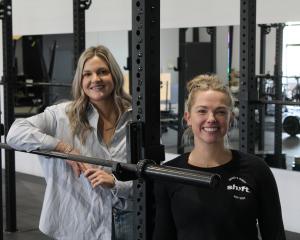
WellSouth Primary Health Network chairman Dr Doug Hill said the health system’s proposed 4% funding increase meant by the end of the year, the majority of GP practices would be running at a loss.
Dr Hill, who is also a GP at Broadway Medical Centre, said this was unsustainable and things would have to change.
An increase in patient fees charged to the patient, a reduction in services, and the closure of more practices could all follow, he said.
"I think we’ll see more practice fees going up very significantly in the Southern region," he said.
The general mood among GPs following the proposal was one of disillusionment.
Although there was now a consultation period, it seemed that Health New Zealand Te Whatu Ora (HNZ) had essentially made its decision, he said.
WellSouth would be giving feedback, but he worried individual GPs may be too disappointed and too busy to make an adequate response.
"The key message is this is now an unsustainable and urgent problem that needs resolution ... we are now fighting for the survival of general practice as we know it."
Not only did the proposal fall behind inflation, but the annual uplift system was based on a model that was more than 20 years old.
However, there had been many changes since then — GPs were dealing with an ageing population, an increased workload of issues that would in the past have been dealt with by secondary care and more compliance costs.
GPs needed a funding increase of 20%-30%, he said.
The annual inflation adjustment calculation this year was 5.8%, which the 4% uplift fell short of.
HNZ’s proposal envisioned the gap would be met by an average allowable patient fee increase of 7.76%.
WellSouth CEO Andrew Swanson-Dobbs said general practice was at the heart of community healthcare, but was "chronically underfunded".
The decisions made by HNZ signaled a lack of commitment to addressing the situation.
"This will not address our Southern challenges; our large rural population, our workforce pressures, and like other regions, our continued inequitable health outcomes.
"While we have long raised our issues to HNZ, we now have an important opportunity to have a say.
"I encourage and welcome feedback from practices to support further negotiation for the capitation uplift."
HNZ living well director Martin Hefford said the consultation period would end on July 18.
The total primary care, public and population health appropriation uplift for 2024-25 was an additional $531million, he said.
The proposed increase for some categories — including community service card holder rates and rates for those aged under 14 — was 5.88%.
"General practices are automatically compensated for volume growth through capitation payments.
"Individual practice fees are a matter for each general practice to decide.
"While HNZ sets the maximum increase, actual fees vary considerably."
Advertisement













